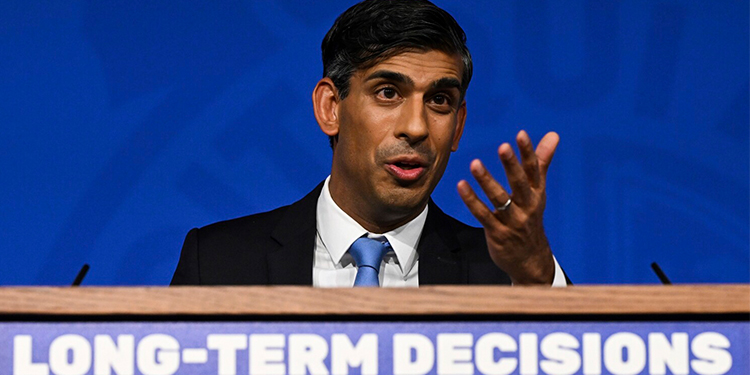British Prime Minister Rishi Sunak recently announced a series of decisions that represent a setback in the United Kingdom’s climate commitments, a measure that has generated criticism and disapproval in various sectors.
The most notable measure is the postponement of the ban on the sale of new cars that run on gasoline and diesel. This ban was initially planned to come into force in 2030 but has now been delayed until 2035. According to Sunak, this decision aligns the UK with other countries and the European Union but has been criticized by the car industry.
In addition, the relaxation of the conditions for the phasing out of gas boilers in 2035 has been announced, and a measure related to the energy efficiency of homes that imposed restrictions on homeowners has been abandoned.
These changes in British climate policy have been attributed to concerns about citizens’ purchasing power and possible electoral consequences for the Conservative party. This represents a setback to the UK’s ambitions to achieve carbon neutrality by 2050.
In July, Sunak sparked controversy by promising new licenses for hydrocarbon exploration and exploitation in the North Sea, and in June, an independent body that advises the government on climate policy lamented the “worrying slowness” in the country’s transition towards targets. legally binding climate policies by 2030.
Sunak’s decision has sparked criticism from both the car industry and environmental groups and has led to the UK being branded a “climate change laggard”. These changes pose challenges on the path to sustainability and the fight against climate change in the country.










